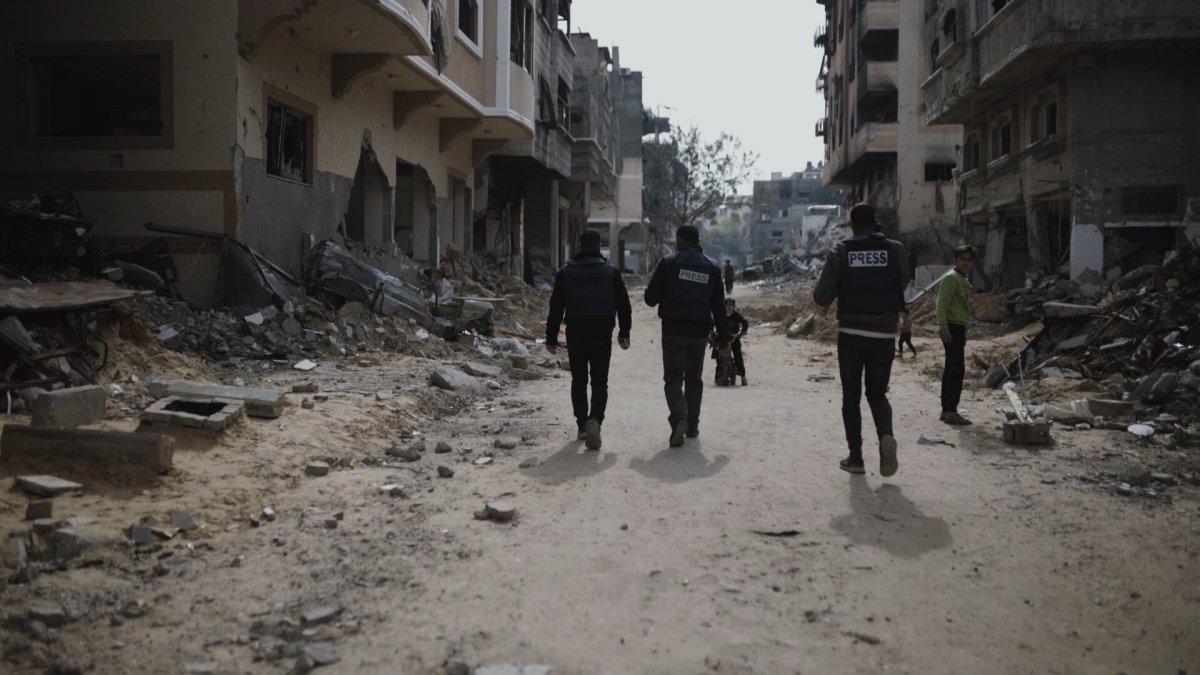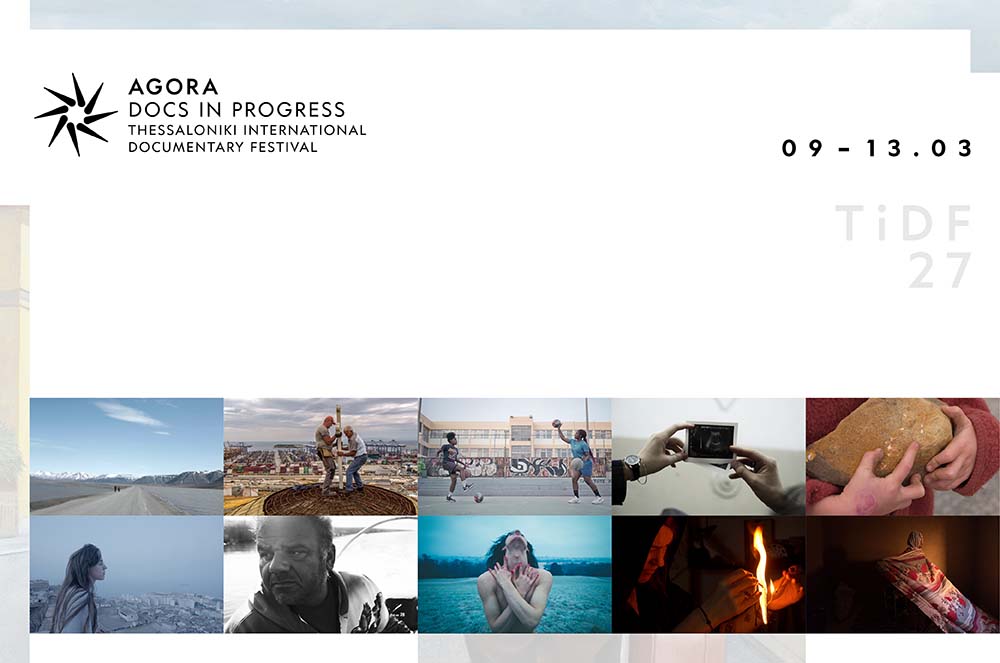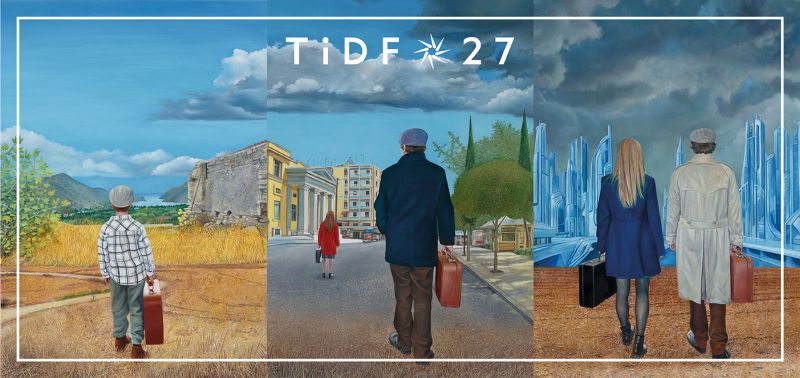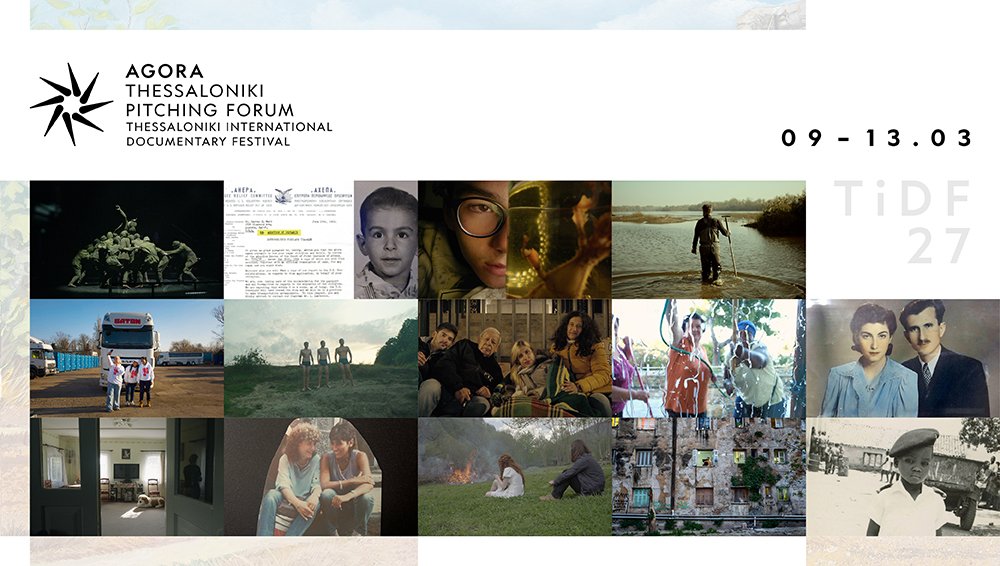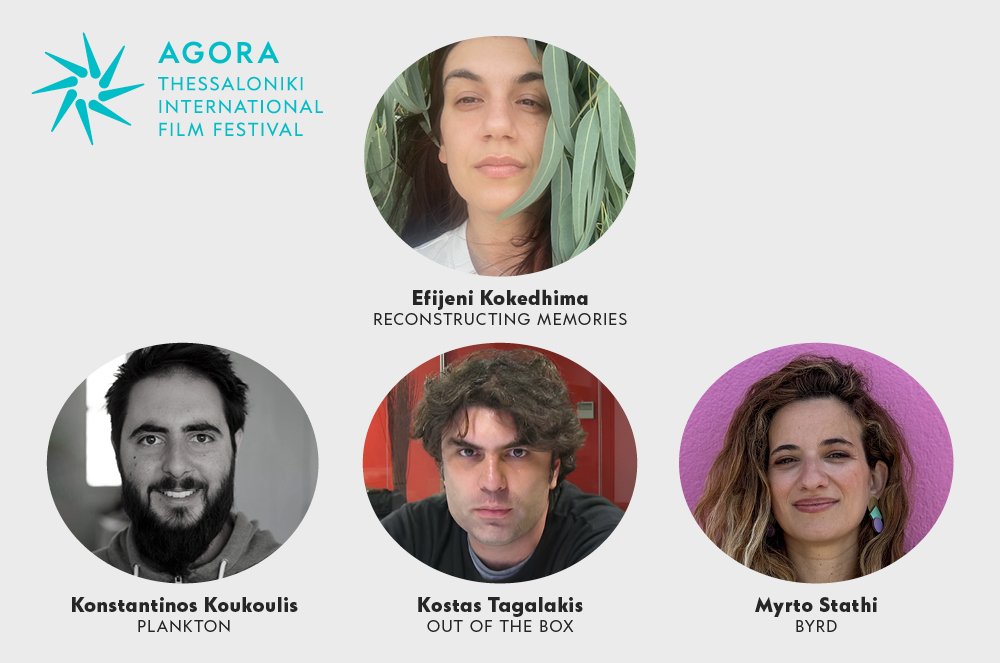Evia Film Project // 15-19 June, 2022
Masterclass Yorgos Avgeropoulos: “Journalism in the production of an environmental documentary”
Within the framework of Evia Film Project’s (15-19 June, 2022) events, documentary filmmaker, journalist and director Yorgos Avgeropoulos delivered a masterclass on Friday June 17th, in Agia Anna. The event titled “Journalism in the production of an environmental documentary”, hosted by iMEdD, was carried out in collaboration with the Digital Arts and Cinema Department of the National and Kapodestrian University of Athens in Psahna, Evia. In his introductory statement, Yorgos Avgeropoulos made a case for the unique character of environmental documentaries, which encompass and round up many different features. “Every environmental issue is by definition political, with social, financial and very often historical dimensions. The goal in every documentary, not limited to the environment-themed ones, is the proper use of journalism, which protects filmmakers from unwanted complications, especially of legal nature. Before we move on, I would like to sincerely thank both iMEdD, an institution with which we have been on close partnership over the last years, and Thessaloniki Film Festival that planned Evia Film Project, a truly wonderful initiative,” he mentioned.
Mr. Avgeropoulos went on to talk about the ways in which journalism can function as a tool in documentary production, placing emphasis on the balance between the journalistic and the aesthetic part. “Our intention is no other than to create an audiovisual work that would be well-structured, have an impact and achieve compositions and high points, triggering emotions and staying away from populist behaviors. The first ground rule to that direction is to stick to the facts. Apart from that, the filmmaker must refrain from the temptation of personal comment, give floor to every opinion, even in the case of a strong disagreement, and avoid any conclusions that cannot be proven through undebatable facts,” he explained.
Wishing to stress out the pivotal role of intense groundwork prior to the production stage, he shared his experiences from the documentary Delta – Oil’s Dirty Business (2006), recipient of seven awards. “To get an idea, imagine that we worked fervently for an entire year just for two weeks of shooting. One of my hardest experiences as a filmmaker was getting in contact with MEND (Movement for the emancipation of the Niger Delta) guerillas, who have the habit of kidnapping journalists and oil companies’ executives. While shooting, they had rented rooms next to ours, submitting us to daily interrogations, trying to figure out whether we worked for Shell. At some point, we found ourselves in a car taking us to a speedboat. By dawn, we were crossing Niger river, where we met another group of men who fired their guns in the air as a stop signal. We did not know whether this trip would lead to shooting a film or getting kidnapped. Sometimes, though, you got to trust your instinct,” he told the audience.
Moving on to the production stage, Yorgos Avgeropoulos underlined the importance of gaining close and immediate access to the topic of interest, stressing out the usefulness of contacts from the local population who know their way around better than any director-journalist. He then went on to focus on the part of the dialogues and the interviews. “You have to search for these punchlines that would allow you to bring forth new issues and bridge gaps in your reasonings. Most of all, though, you have to make the interviewees feel comfortably, so that they would eventually open up. Therefore, it is a big mistake to start out with a pointy question. Moreover, it is essential to keep in mind that interviews in a documentary are conversations and not answers to question read from a paper. In any case, regardless of the answer received, you should not express disagreement, as intense as it might be. We’re there to record the full scope of arguments of every aspect of the topic,” he commented.
The next part of the masterclass revolved around the stages of scriptwriting, editing and post-production, as Yorgos Avgeropoulos revealed his personal working method. “My approach involves a detailed transcription of every interview and list containing all scenes, where I embed a series of time codes. This way, I have complete control over the script before entering the editing room. It is crucial to define the narrative line. What will be the starting point of the film? Will it be linear, will it kick off in medias res? Another critical decision is to have a director’s voice over or not? Editing is, of course, the most fundamental stage, endowed with a touch of magic, pretty much like orchestration in music. Even you are into the editing process, I find it essential to work alongside a professional editor. The filmic time at our disposal is precious, we must not hesitate to cut scenes, regardless of the time and effort it took us to shoot them. It goes without saying that the importance of sound is colossal. You have to be diligent and thorough in the areas of sound design, sound effects and sound mixing. Color, like editing and music, has an emotional impact on the viewer. It is necessary to invest time and money on color correction and color grading, two areas that constitute a separate form of art.
Answering to a question by the audience as to how he has evolved in the course of his career as a director, Yorgos Avgeropoulos placed the turning point around 2003-2004. “Up until 2000, I was what we call a “first-line reporter”, having worked as a correspondent in seven wars. I used many clichés, many pompous expressions, I was overly expressive both in my comments and image-wise. It took me 3-4 years to smother the TV journalist inside of me. Of course, setting up our own company was helpful, as it gave me the chance to work independently. I always try to experiment, though, with different budgets and different genres,” he replied.
As for the distinction between TV and cinema documentaries, Mr. Avgeropoulos answered by referring to a past incident. “In 2005, Thessaloniki Documentary Festival hosted a tribute to Exandas. Dimitri Eipides became the target of fierce criticism on the part of doc “purists”. I must admit it was a painful experience for me. This distinction exists only in Greece, but fortunately it is losing ground. I believe that Exandas paved new ways for the journalistic documentary in Greece. If you ask my definition of art, anything that has the power and the ability to change my life falls into that category. I will keep making documentaries for every issue that awakens my need to say something. Of course, it is impossible to have a view on everything,” he concluded.
The Evia Film Project is part of the "Light Donors" of the "Reconstruction Program of North Evia - Evia Meta". They are projects and events implemented in collaboration with Ministries and Institutions, highlighting all aspects of the holistic program in North Evia and illuminating the future of the region.
More:
https://evoia-meta.gov.gr/
https://www.facebook.com/EVIAMETAPROJECT/









